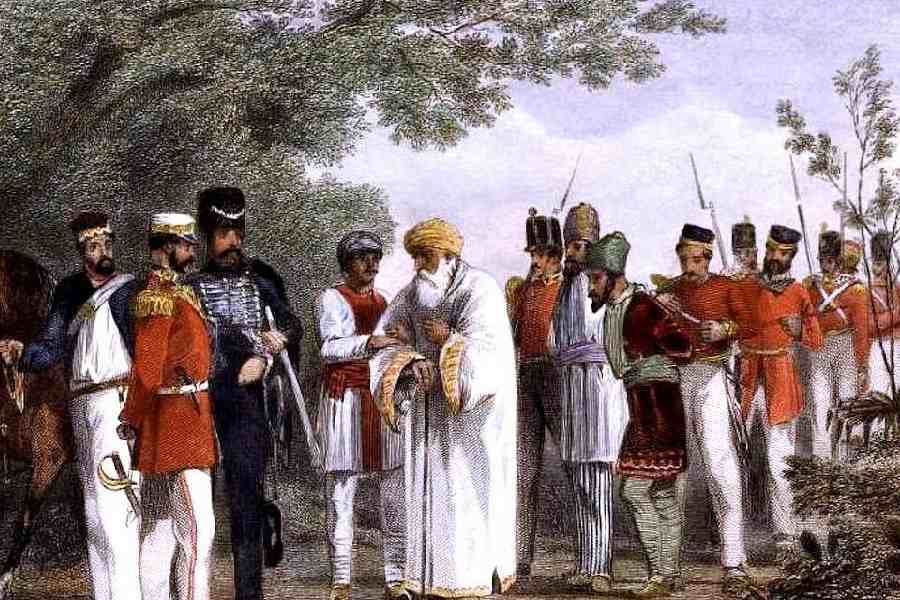Book: TRIALS OF SOVEREIGNTY: MERCY, VIOLENCE, AND THE MAKING OF CRIMINAL LAW IN BRITISH INDIA, 1857-1922
Author: Alastair McClure
Published by: Yoda
Price: Rs 899
We have all read books about the iron fist of the British raj. But Alastair McClure’s Trials of Sovereignty shows that it was the velvet glove of mercy that truly sustained colonial power. McClure looks past the gallows and the flogging post to reveal a carefully managed economy of leniency, pardon, and discretion. His core insight is that violence and mercy, which have always seemed mutually incompatible, were, in fact, two sides of the same coin.
The book opens with a striking juxtaposition. In 1858, Bahadur Shah Zafar, the last Mughal emperor, was found guilty of treason but spared execution — his survival was a precondition for surrender. Sixty-four years later, M.K. Gandhi stood trial for sedition and defiantly insisted on his guilt without asking for mercy. Between these poles, McClure situates six decades of colonial governance in which the criminal trial became both a stage for sovereign power and a chamber of political debate.
The book’s deep dive into the Indian Penal Code of 1860 is particularly revealing. On the surface, the code promised uniform justice for all. In practice, however, it armed colonial judges with vast discretionary powers to police India’s complex social order. In sensitive cases like domestic violence or infanticide, sentences were often softened — not out of compassion but as a strategic move to appease local elites. By selectively punishing some while sparing others, the raj actively reinforced hierarchies of caste, class, and gender. Mercy was a calculated tool of control, masking the coercion on which Empire rested.
As the nationalist movement gathered momentum, mercy became a contested terrain. For the colonial State, it was a way to draw political prisoners back into the fold. For nationalists like Gandhi, the rejection of mercy became a means of exposing the moral bankruptcy of imperial justice. To ask for mercy was to acknowledge the legitimacy of the raj, but to embrace punishment was to declare one’s independence of it.
Narratives which come full circle rarely miss the mark. Trials of Sovereignty starts in the Red Fort — where, by convicting Zafar but sparing his life, the British Crown established its legitimacy. Nearly a century later, the story concludes in the Red Fort with the 1945 INA trials, where mercy, once foundational to the raj, became implicated in its unravelling. No longer a gift from the sovereign, it was now a demand from the people, and faced with massive protests, the British were forced to commute the soldiers’ sentences.
What makes Trials of Sovereignty so compelling is its ability to transport the reader. McClure doesn’t just present his findings: he pulls you into the archives alongside him, making you feel the weight of long-forgotten mercy petitions written in faded ink. He then masterfully reconstructs the colonial courtroom, placing you in the gallery to witness the drama unfold. This is why the book speaks not only to historians and lawyers but also to general readers curious about why our laws look the way they do.
This is a major contribution to the legal and intellectual history of Empire, compelling us to recognise that the raj endured not only through brute repression but also through the careful management of clemency, pardon, and discretion. For anyone seeking to understand the entangled legacies of colonial law, and why our criminal justice system still bears its marks, this book is essential reading.










